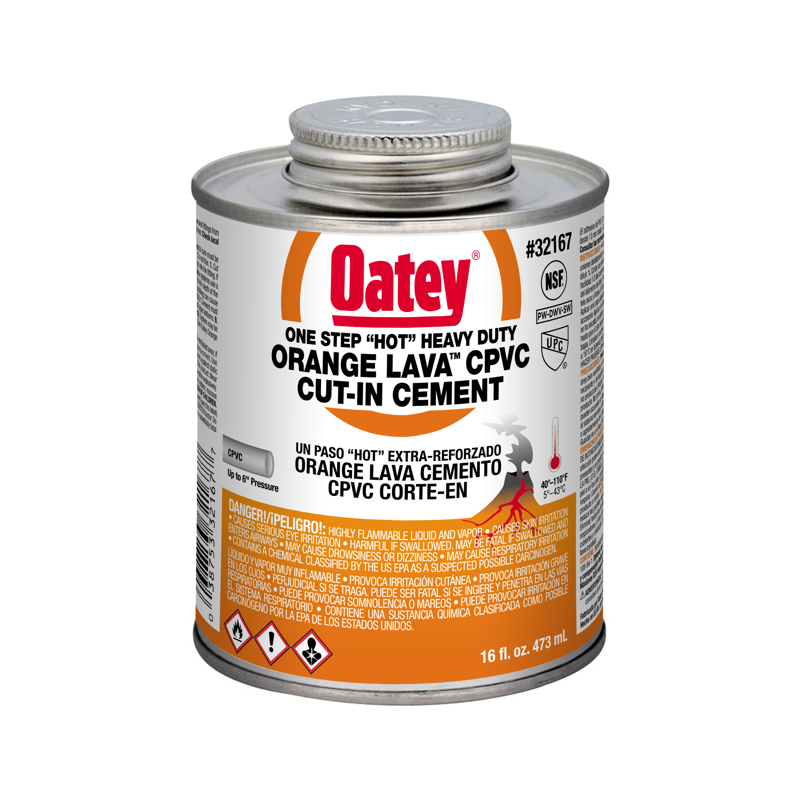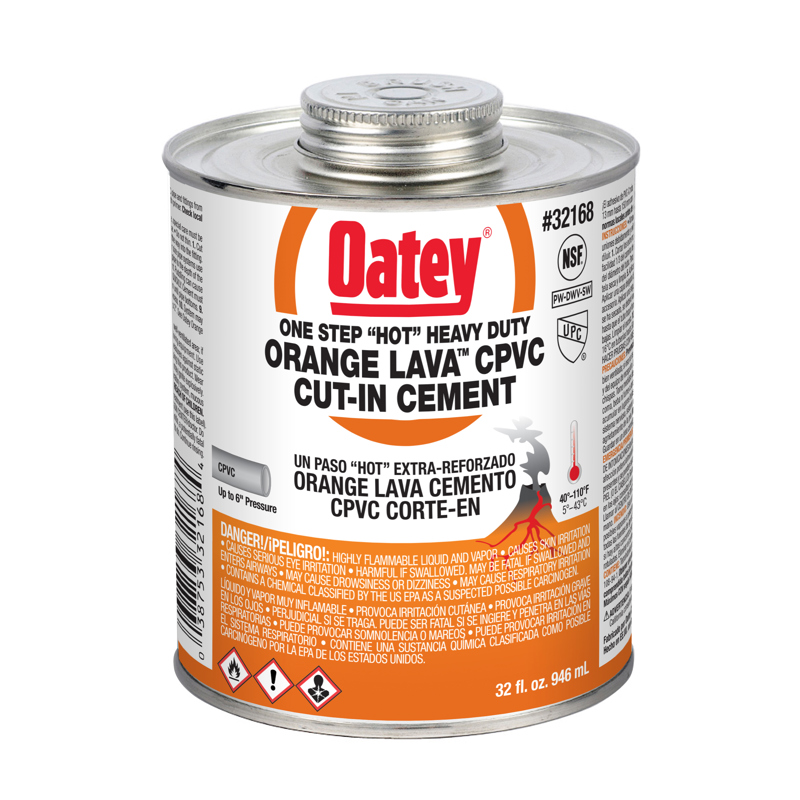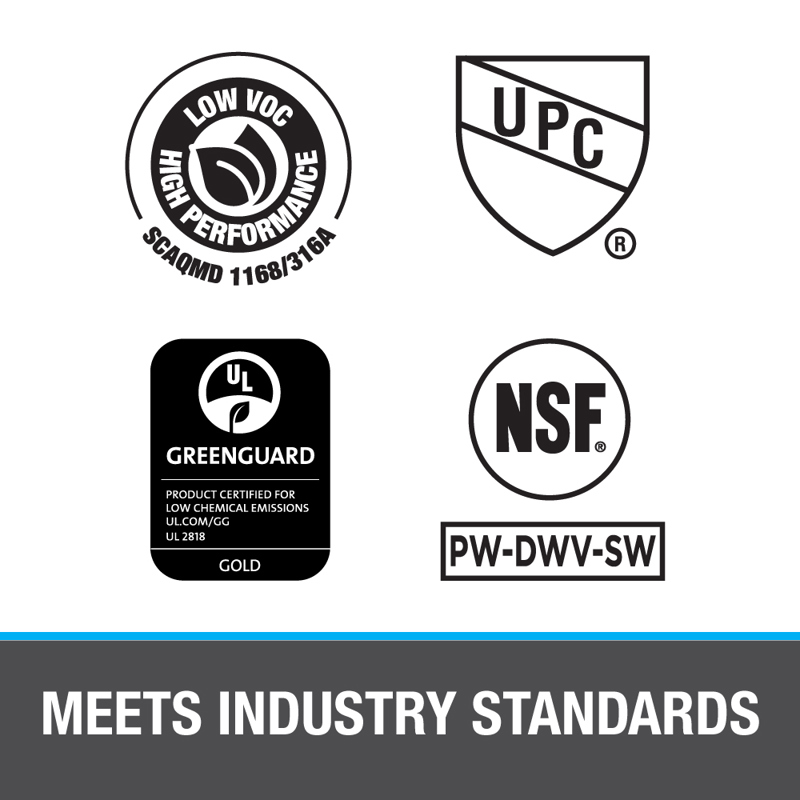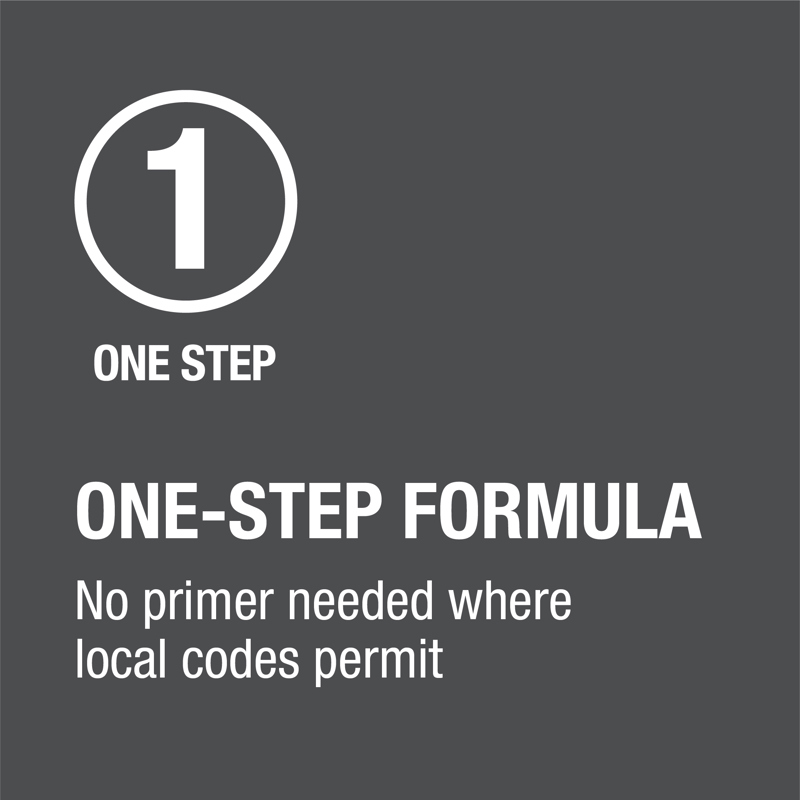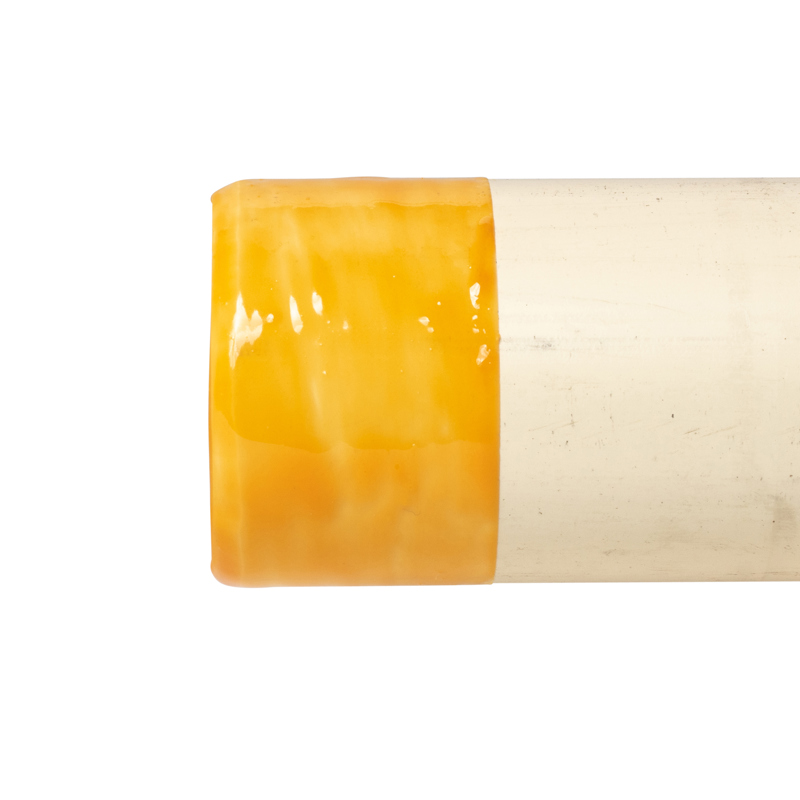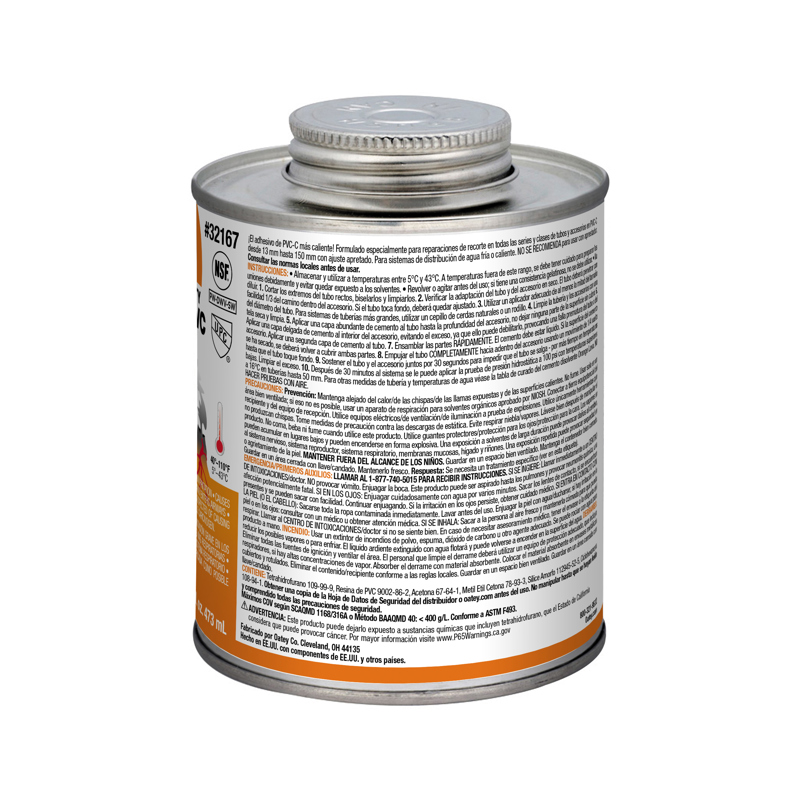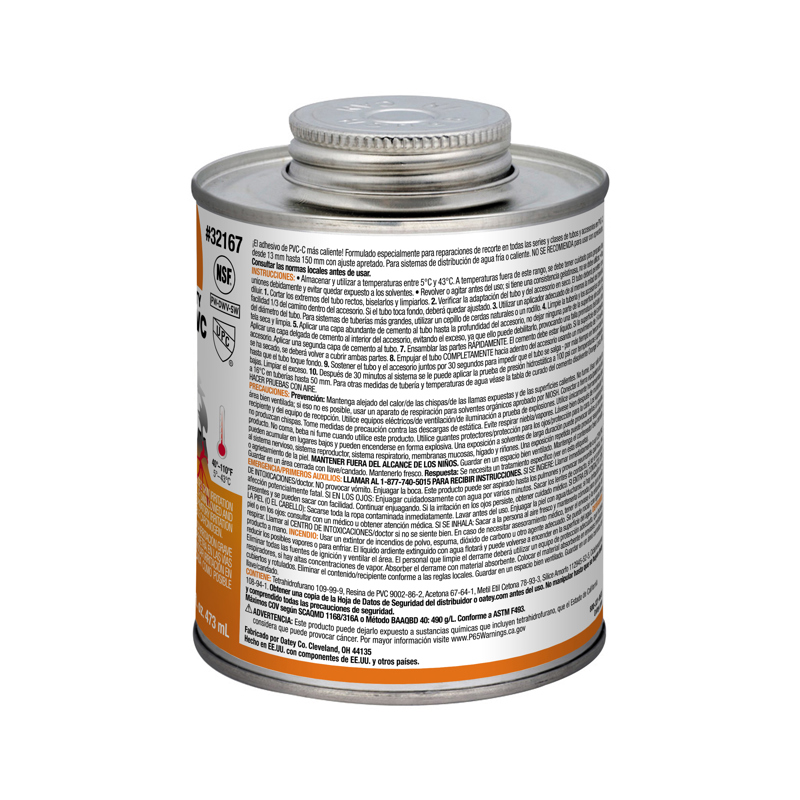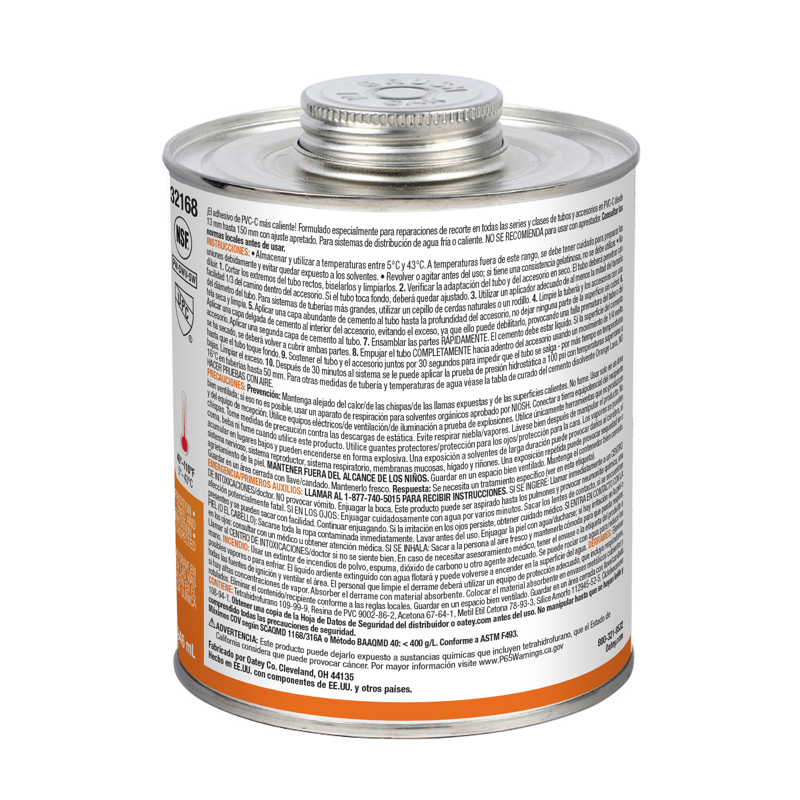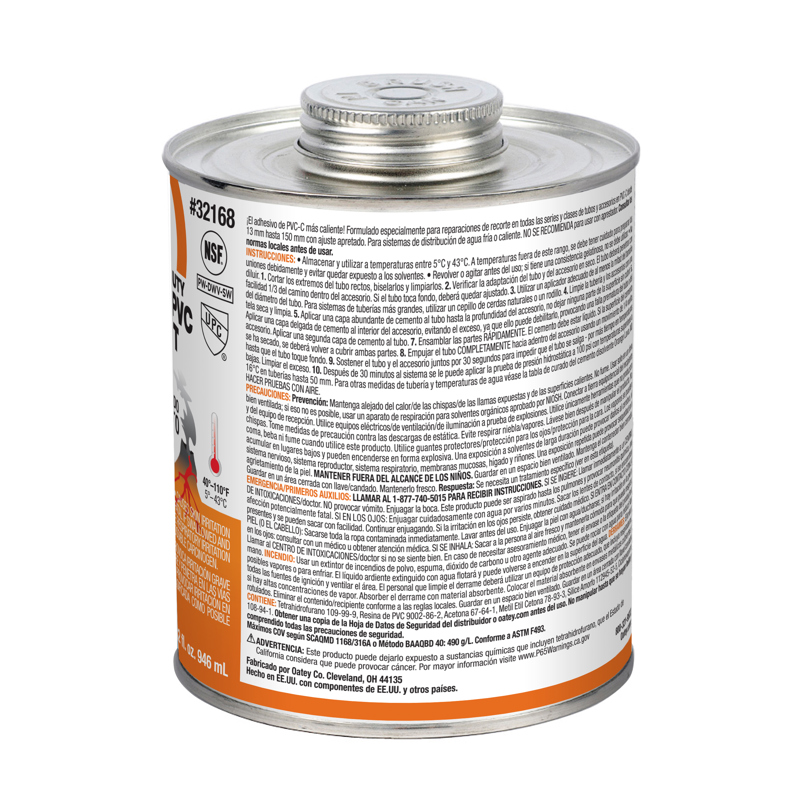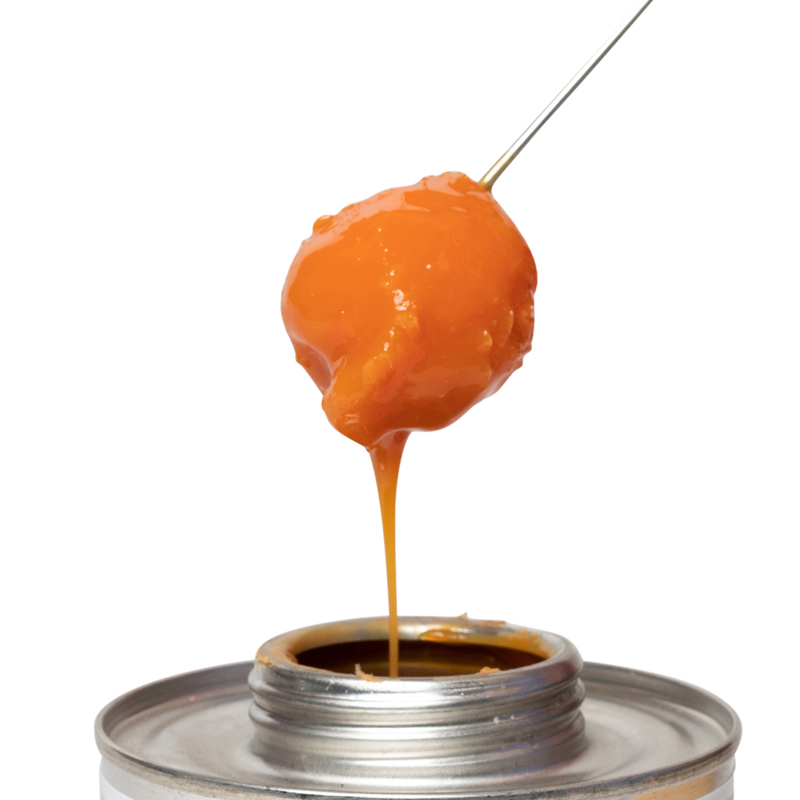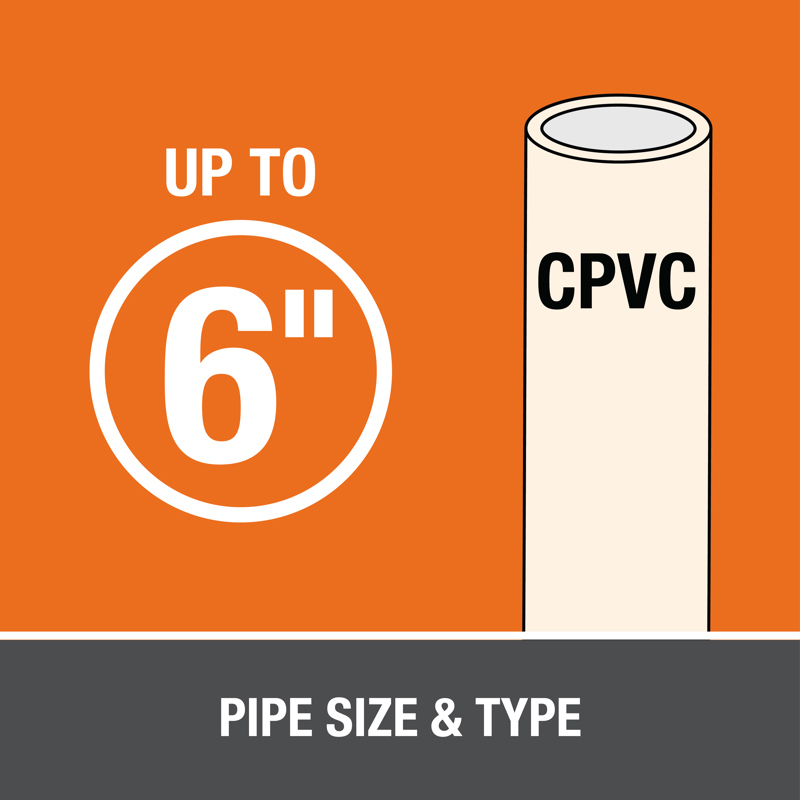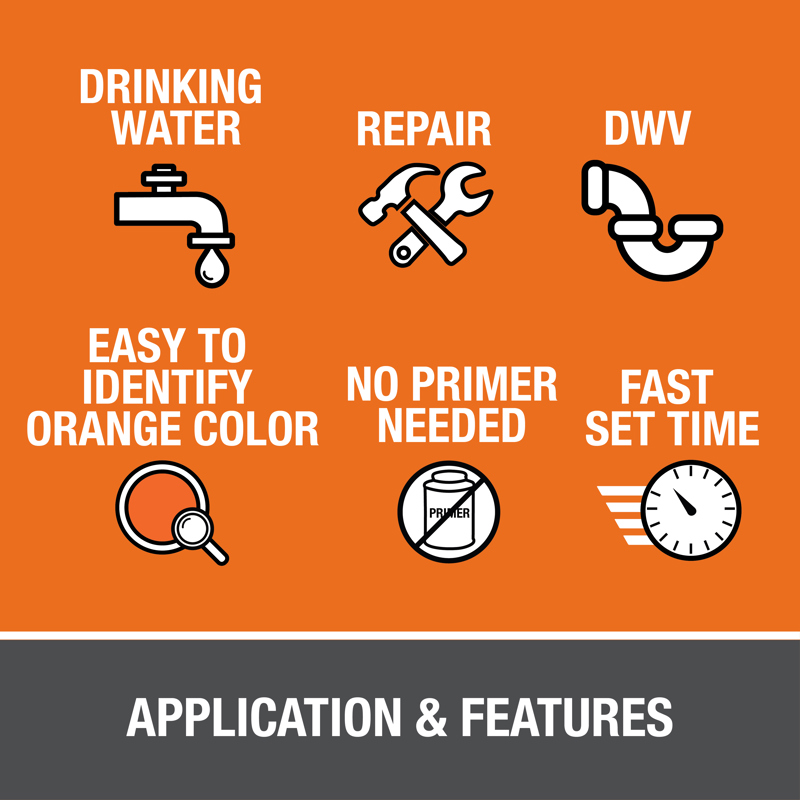< Cements
Oatey® Orange Lava CPVC Cut-In Cement
Key Features & Benefits
- One-step orange cement with dauber primes and solvent welds CPVC
- Fast set for pressure, potable water cut-in, repair applications
- Quickly melts pipe surface to weld the joint, primer not required
- Can be used on CPVC pipe and fittings up to 6 in. diameter with interference fit
- For commercial hot and cold water systems up to 200°F / 93°C, and including FlowGuard Gold® and Corzan® CPVC Piping Systems
- Designed for cut-in applications where available downtime is limited
- All Oatey solvent cement and primer products are certified to UL Greenguard Gold
- Please refer to the Oatey Limited Warranty for warranty details
Specifications
| Maximum Application Temperature °F: | 110ºF |
|---|---|
| Maximum Application Temperature °C: | 43ºC |
| California VOC Compliant: | Yes |
| Maximum Use Temperature °F: | 200ºF |
| Set Speed: | Fast Set |
| Brand: | Oatey |
|---|---|
| Product Type: | CPVC Cement |
| Color: | Orange |
| Set Type: | Standard (40 - 110° F) |
| Material: | CPVC |
More Specifications
Technical Resources (9)
More Downloads
Available in 3 variations
Frequently Asked Questions
Cure times vary depending on a wide variety of factors. Please review the documents below and read our blog for more helpful information.
Solvent Cement Cure Charts
Solvent Cement Instructions
What PVC cements allow for the longest set-up time, for multiple joint assemblies?
The regular body cement has the longest working time once the joint has been assembled on pipe sizes up to 4” diameter. However, the regular body cement has the quickest set up time before the joint is assembled because of the quick evaporation process. Any pipe sizes over 4” should be discussed with the technical department.
What cements allow for the shortest set-up time, for multiple joint assemblies?
The heavy duty cement has the shortest working time once the joint has been assembled on pipe sizes up to 4” diameter. However, the heavy duty cement has the slowest set up time before the joint is assembled because of the slow evaporation process. Any pipe sizes over 4” should be discussed with the technical department.
